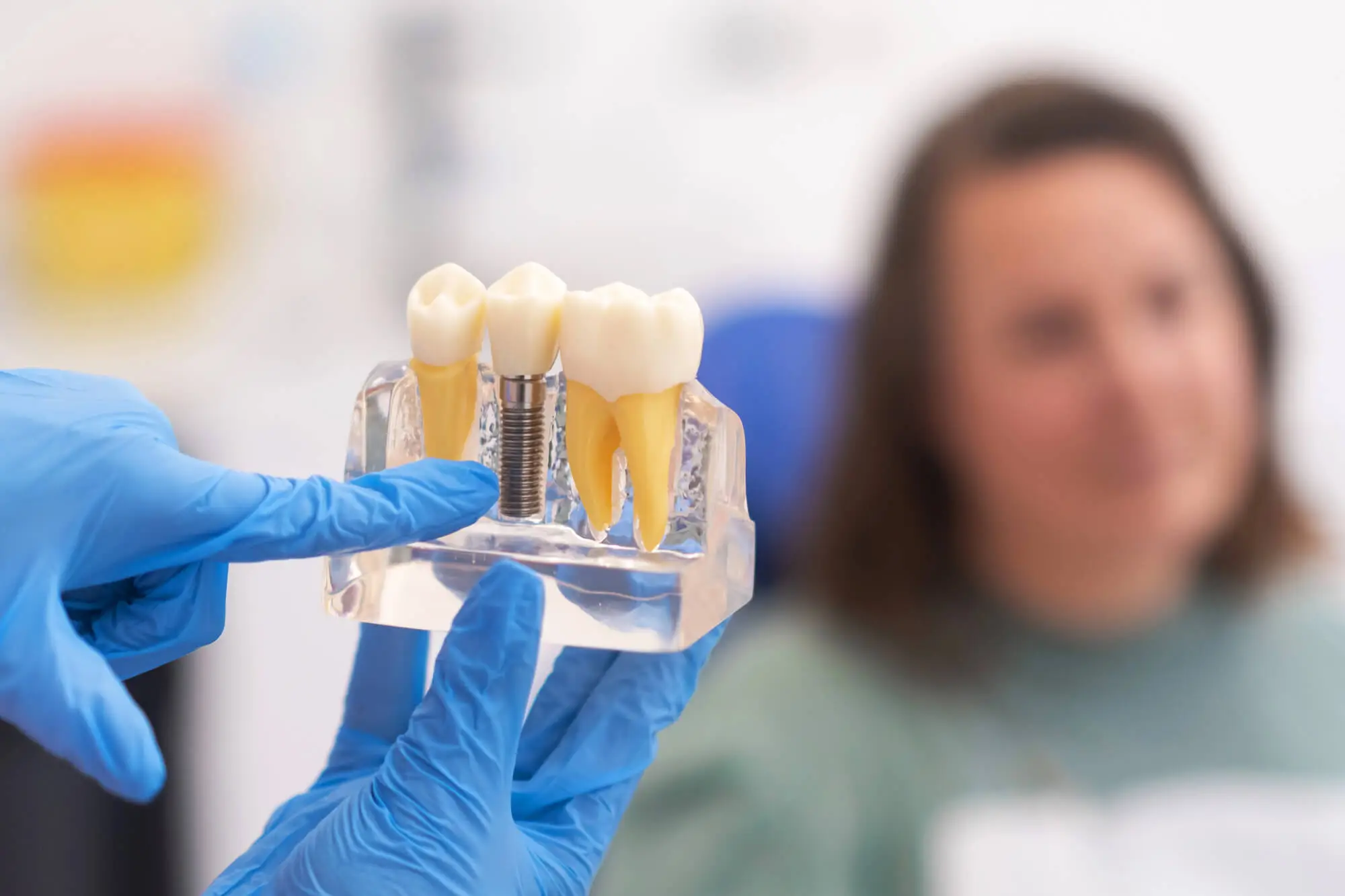
When researching treatment options to restore missing teeth, we often hear that dental implants in Madison, AL, are the gold standard. They offer a durable and long-lasting solution for individuals who have lost teeth due to injury, decay, or disease. Unlike traditional dentures or bridges, implants are fixed in place and integrate with the bone, providing stability and a natural look and feel.
Still unsure about whether this option is right for you? Understanding its benefits and how the placement works in detail is key to making a confident decision.

What Are Dental Implants?
Dental implants are artificial tooth roots made of biocompatible materials (usually titanium) surgically implanted in the jawbone to hold a replacement tooth or bridge.
Implants work by mimicking the function of natural teeth. A dental implant has three main components:
- The implant post (fixture) is the screw-like part inserted into the jawbone. It serves as the artificial tooth's root. It’s typically made of titanium because of its strength and ability to fuse with bone (a process known as osseointegration).
- The abutment connects the implant post to the crown. It is inserted after the implant has integrated into the bone.
- The crown is the visible part of the implant, custom-made to match the patient's natural teeth in color, shape, and size.
After osseointegration, the implant becomes firmly anchored to the jawbone. This creates a solid foundation for your new restoration and prevents shifting, regardless of what you eat and chew.
What Are the Benefits of Dental Implants?
As mentioned, an implant’s ability to integrate with your natural bone makes it a unique dental restoration. This factor is also what allows these restorations to offer a wide range of benefits that no other treatment allows, such as:
1. Feel and Look Natural
Dental implants' natural appearance is among their most important advantages. They are designed to match the color, shape, and size of your existing teeth, blending in seamlessly. Because they are securely anchored into the jawbone, they feel like natural teeth when you chew or speak.
Many people with implants forget they even have them, regaining the ease of use of their mandible that they had long forgotten.
2. Chew and Speak with Ease
Missing teeth or ill-fitting dentures can make eating certain foods and communicating clearly difficult. Dental implants restore full chewing power, allowing you to eat various foods without pain or discomfort.
They also improve speech by preventing the slipping and clicking commonly occurring with removable dentures. This allows you to feel more confident speaking in social situations.
3. Long-Term Durability
Dental implants can last several decades, if not a lifetime, with proper care. Unlike dental bridges, which may need to be replaced every 7-15 years, implants are made of durable materials such as titanium and ceramic that resist wear.
Often, when an implant needs repair, only the crown (the visible part) needs restoration. However, the implant post is highly durable.
4. Improve Your Jawbone Health
One of dental implants' lesser known but critical benefits is their ability to preserve jawbone health. When a tooth is lost, the jawbone in that area begins to shrink due to the lack of stimulation the tooth root provides. This is a natural process, but it can cause wrinkles, skin sagging in the area, and even foster tooth loss.
Implants act like natural tooth roots and stimulate the bone, preventing bone loss. This helps maintain your facial structure and prevents the "sunken" appearance that can occur over time with missing teeth.
5. No Impact on Neighboring Teeth
Traditional dental bridges require grinding the adjacent teeth to support the new tooth. Implants avoid that need, preserving the health and structure of your natural teeth. This is especially important for maintaining long-term oral health.
6. Convenience and Low Maintenance
Dental implants don’t require special care or removal like dentures. You can brush and floss them just like your natural teeth and visit the dentist once every six months.
There’s no need for adhesives or soaking solutions, making implants convenient and low maintenance.
7. Improved Self-Esteem and Quality of Life
Having a complete and attractive smile can significantly boost self-confidence. People with implants are often more comfortable smiling, eating in public, and participating in social activities. The psychological impact of feeling whole again after tooth loss can be life-changing.

What is the Process for Getting Dental Implants?
One downside of implant placement is that it can take a long time. After placing the titanium post, we must wait until it osseointegrates, which can take 3 to 6 months.
For some patients, this lengthy treatment process is a downside. However, understanding how it looks in detail—and why the wait is so important—may make you more willing to endure the process.
Typically, implant placement involves:
- Initial Consultation and Planning: The dentist or oral surgeon will perform a thorough examination, including X-rays or 3D scans, to assess bone density and determine whether implants are appropriate.
- Implant Placement: The implant is placed in the jawbone in a surgical procedure. Local anesthesia or sedation is commonly used to prevent discomfort.
- Healing and Osseointegration: The healing phase can last between 3 and 6 months, allowing the implant to fuse with the bone. Temporary teeth can be placed during this time.
- Abutment Placement: After healing, the abutment is attached. Sometimes this step is done during the initial surgery.
- Crown Placement: Finally, a custom-made crown is attached to the abutment, completing the restoration.
Are You a Candidate for Dental Implants?
Dental implants are not for everyone. While most healthy adults are good candidates for dental implants, having enough bone density to support this restoration is crucial.
Without this support, the implant won’t have a place to anchor and be at risk of becoming loose and falling over time. Additionally, the dentist will ensure you’re free of health issues like cavities or gum disease, which could impact healing after surgery.
There are solutions for making implants possible, including bone grafts. However, it’s important to get a thorough assessment with your dentist beforehand to protect your overall health throughout the process.

Protect Your Oral Health with Dental Implants in Madison, AL
Dental implants are a modern, reliable solution for replacing missing teeth. They provide stability, preserve jawbone health, and closely replicate the function and appearance of natural teeth.
Although the process can take time and requires a financial investment, the long-term benefits make implants a highly effective option for many patients. Moreover, with proper care and professional guidance, dental implants can offer a lifetime of improved oral health and confidence.
Are you interested in dental implants? Wilson Family Dental can help. Contact us today, and let’s schedule an appointment to answer your questions!





%401x.svg)